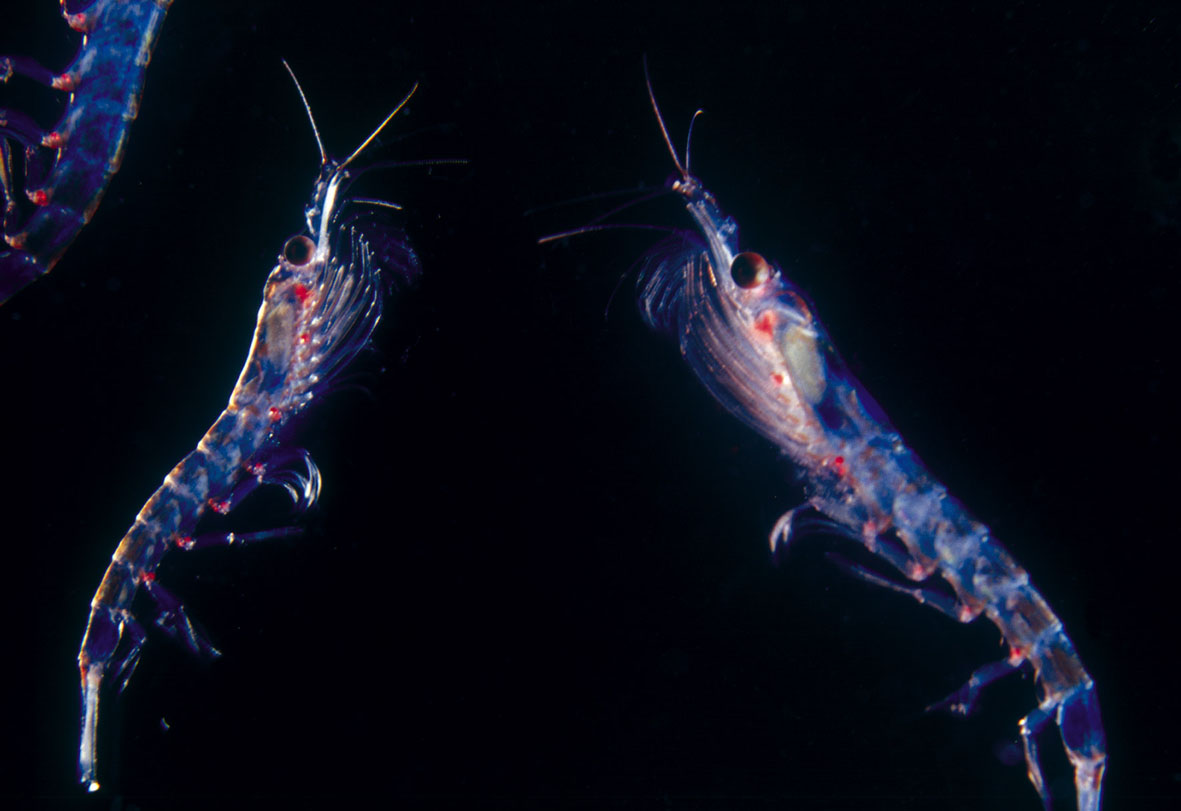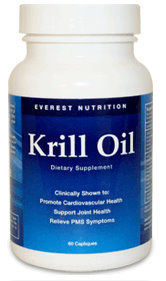Wednesday Bubble: More flack about flaxseed
First Bubble of the year!
Ya know, the news on flaxseed continues to be less than stellar, at least in so far as its effect (or lack thereof) on hot flashes. And while the flaxseed story continues to build on benefits in terms of bone health and even breast cancer reduction (see these links), you may want to seek alternatives when those flashes start taking over.
In fact, results of a well-designed, scientific, controlled study in which women ingested a daily flaxseed bar or a placebo bar failed to show much benefit at all. The study, published in this month’s Menopause journal, analyzed the effects of flaxseed (containing 400 mg of the estrogen like antioxidant, lignan, 6 gm of protein and 20% fiber) in 188 women in menopause who reported having anywhere from 4 to more than 10 hot flashes a day over a period of 9 months or more. Participants ate flaxseed or a placebo bar (containing 2 gram of protein and 20% fiber) for six weeks. The bars were eaten all at once or throughout the day and the women were asked to record the frequency and severity of their hot flashes in a personal diary.
The results? Regardless of whether or not the women ate flaxseed or placebo, their hot flashes were reduced fairly equally, with about about a third of the women in each group reduced their hot flash scores by 50% or more. Another third of women in each group noted that they didn’t experience any effect at all. Moreover, both types of bars caused gastrointestinal problems, namely bloating, gas and diarrhea, most like due to their considerable fiber content.
Meanwhile, if you like flaxseed, there is absolutely nothing wrong in eating it. It may help your bones, fight cholesterol and keep you regular. But in so far as the flashes go, you definitely want to look elsewhere.
[Evidently, this study first appeared online in September. Thanks to Ivan Oransky over at Reuters Health for the heads up. And if you want to read more, here’s their piece on the same study.
Read MoreSeeds of change, part 2: flaxseed oil and bone health
Last year I wrote a post about the promising effects of flaxseed — a plant-based estrogen– on hot flashes. Flaxseed contains antioxidants with weak estrogen properties (lignans) and omega-3 fatty acids. It is also an excellent source of fiber. In addition to its potential ability to reduce the frequency and severity of menopausal hot flashes, it might also be a valuable tool for both heart disease prevention and boosting the effects of breast cancer therapies.
Another potential use of flaxseed, namely the oil, is to reduce osteoporosis risk. In an animal study published in the International Journal of Food Safety, Nutrition and Public Health, researchers analyzed how the addition of flaxseed oil to the diet of 70 diabetic rats (30 of which had had their ovaries removed) might affect bone health. Note that while studies have shown a clear link between type 1 diabetes and osteoporosis, the evidence is not quite as clear for type 2. Nevertheless, both types of diabetes have been linked with an increased risk for fractures.
After two months, insulin-like growth factor and osteocalcin ( a bone-creating protein) were increased in rats who received the flaxseed oil in their diet. In fact, the levels of these two markers actually reached normal. On the other hand, levels of a marker that actually breaks down bone, fell. The research team attributed the positive effects of flaxseed oil to its omega-3 component.
Certainly, studies are needed in humans to truly determine if flaxseed oil can have a beneficial effect on bone health, especially in post-menopausal women who also have diabetes. In the meantime, it can’t hurt to add a bit of flaxseed oil to your diet. A little prevention may go a long way towards protecting those bones!
Read MoreWednesday Bubble: This is your brain. This is your brain on phytoestrogens.
Do phytoestrogens improve cognitive performance?
This is the first I’ve heard that phytoestrogens, i.e. isoflavones, lignans (a major form of phytoestrogens found in flaxseed and sesame seeds) and coumestans (a type of phytoestrogen found in split peas, pinto beans and lima beans) may help boost attention, executive function and memory. Yet, similar to other alternative strategies, the studies examining these benefits have yielded mixed results. Moreover, a lot of these studies have been based on short-term and not long-term use of phytoestrogens, have failed to determine how these compounds may influence brain function, and have not looked specifically at women undergoing the menopausal transition, at least until now.
This time, researchers took a cohort of women actively involved in the Study of Women’s Health Across the Nation. All 1,677 women who saw the study through to its end were between the ages of 42 and 52, premenopausal, early or late perimenopausal, and naturally or surgically postmenopausal, and were not using hormones. Importantly, this group of women included several ethnic groups, which allowed the researchers to see if phytoestrogens behaved differently depending on ethnicity; they included white, African American, Hispanic, Chinese and Japanese.
- Diet was regularly evaluated and included interviews, open ended questions and specifically, daily intake of four types of isoflavones, four types of lignans and coumesterol, which is the main phytoestrogen in coumestans. In Asian women, soybeans, tofus and soy milk were the main sources of isoflavones while in non-Asian women, soy mik, tofu and meat substitutes (e.g. seitan) were the main sources. Regardless of ethnic group, coffee and tea were the primary sources of lignans, and bean sprouts, the main source of coumestans.
- Cognitive testing was done in the morning and always in the same language for bilingual women. These tests included processing speed, immediate and delayed recall and working memory.
- The study took place over 6 years and women were visited 10 times.
So, what did they learn?
First, phytoestrogens appear to affect cognitive function differently, depending on the type and stage of menopause. For example, Asian women whose diets had high levels of isoflavones tended to process information quicker but only during early perimenopause and postmenopause. Conversely, during the same time, these women had poor recall. Non-Asian women who ate a lot of isoflavones also had poor recall during perimenopause. Moreover, women who ate the most lignans, regardless of ethic group, appeared to have better memories but only during late perimenopause. Overall, coumestans did not appear to influence brain function whatsoever.
It’s all sort of confusing, isn’t it? What’s more, even the researchers admit that the effects, when seen, were quite small. And the distinctions between Asian and non-Asian women? It’s the chicken/egg paradigm: is it dose or DNA? At the end of the day, it’s all bubble burstable because scientists remain unclear as to how phytoestrogens affect the way we process information. It is possible that its due to their antioxidant characteristics, but who knows?
Meanwhile? Despite potential GI tract issues (e.g. gas, bloating, constipation), incorporating higher levels of phytoestrogens into your diet may be a good thing. Your brain on phytoestrogens? Who doesn’t need a little boost?
Read MoreFish oil. One of these is not like the others…
[Photo credit: Australian Government Department of Sustainability, Environment, Water, Population and Communities. Australian Antarctic Division. ™2004.
Fish oils. Love em or hate em, they’re here to stay. And researchers will continue to research the hell out of these substances — namely omega 3 fatty acids — until they solve the question of ‘do they or don’t they?’ Meanwhile, true confession: as much as I’ve attempted to take fish oil supplements or flaxseed oil per health practitioner recommendations, I’ve always failed horribly. It’s the burp factor. They make me burp and I taste fish all day long. Can’t stand it. Or Stomach it. Or something.
And then I was contacted by the folks over at Everest Nutrition Corporation about its krill oil supplement. And I’ve been reborn.
Let me give you a brief overview of omega-3s and then the lowdown on krill. And why I’ve been converted.
Early last year I wrote a post on research that examined if some of the most commonly used ingredients in supplements may or may boost certain components of mental energy. Here’s an excerpt (although if you’d like to read the post in its entirety, you can find it here):
Omega-3 fatty acids I love fish oils. Researchers continue to study them because their utility is so broad, although the source of omega-3, dosage and ratio of EPA and DHA appear to be important factors in terms of mood (i.e. depression in particular) and mental energy. Overuse of fish oils can also impair the ability of blood to clot and depress overall immune functioning. Still, out of the dietary components that researchers studied, omega-3′s were by far the one most backed by clear data. Most recently, they’ve also been shown to help prevent stroke. In so far as mental energy goes, the researchers note that evidence suggests that fish oils may help delay or reduce cognitive decline in the elderly or improve verbal fluency. Less clear is whether this benefit is stronger if the they are taken earlier in life before cognitive decline. And of course, there is litte agreement on whether or not fish oils supplements convey the same benefits as obtaining the through dietary sources. And, if you choose to obtain your omega-3s through supplementation or pure oil, there is the issue of overfishing of the world’s oceans and how fish oil preparations may contribute to the problem.
So what about fish oil supplements derived from krill?
Krill are small, shrimp-like crustracean that feed on microscopic organisms in the ocean called phytoplankton. Compared to other sources of omega-3s, krill is in less danger of being overfished, one reason why it is so attractive. However, the omega 3s in krill oil attach themselves to fats the form cell membranes (phospholipids), rather than triglycerides, which theoretically makes krill derived omega-3 fatty acids more effective reducing fats in the heart and liver. Another benefit of krill oil is that it contains an antixidant called astaxanthin, which helps protect the body from damage by UV rays, and can help reduce LDL-cholesterol levels while raising HDL-cholesterol levels. Moreover, astaxanthin crosses the blood brain barrier, meaning that it might be of use in protecting eyes, the brain and the central nervous system from circulating free radicals.
However, buyer beware! Not all krill oils are created equal and you want to be certain that what you’re buying meets the highest standards in terms of:
- Meeting content claims about levels of ecosapentaenoic acid (EPA), doxosahexaenoic acid (DHA) and phospholipids
- Meeting claims about how much astaxanthin is delivered per capsule
- If the formulation meets standards for purity, safety and cleanliness per International Krill Oil Standards (IKOS)
- If the product is stable
- If the product meets the standards for contents of heavy metals and mercury
You also need to know that krill oil should not be taken by people with shellfish allergies. Additionally, some people report having gastrointestinal issues, e.g. diarrhea, loose stools when taking krill oil; this is due to the fatty acid that is present in the oil, and may be alleviated by taking a lower dose. Like other forms of fish oil, krill oil may also thin the blood and impair its ability to clot, and in some cases, may interact with thyroid medication. Pregnant women should speak to their doctors before trying krill oil.
Like many other forms of omega-3 fatty acids, krill oil can be expensive. A 30-day supply of Everest Nutrition’s Krill Oil costs roughly $30 a month, which comes out to $1 a day or $.50 a capsule.
So, what do I think? I’m a believer. I have had physicians and other healthcare practitioners recommend that I take fish oil for as long as I can remember. And I haven’t because of the burp factor. I’m grateful to have discovered krill oil. And I highly recommend Everest Nutrition’s formulation, primarily because the manufacturer adheres to the highest of standards.
[Disclaimer: I was not paid to write this review of Everest Nutrition Krill Oil. However, company representatives did provide me with product to try.]
Read More
Flashfree food for thought: lignans and breast cancer risk
I’ve written previ0usly about the potential benefits of flaxseed in boosting bone health and alleviating hot flashes. Now, researchers are suggesting that flaxseed and other foods that contain high levels of lignans – a type of phytoestrogen with both weak estrogen and antioxidant activities – may also help lower the risk of breast cancer in postmenopausal women.
In a large analysis of 21 studies examining possible links between lignan intake and breast cancer risk, the researchers found that including large amounts of lignan in the diet reduced the risk of developing breast cancer by as much as 14% in postmenopausal women. What’s more, risk was reduced by as much as 16% in studies that specifically examined levels of compounds called “enterolignans,” which are created with dietary lignan enters the stomach and interacts with bacteria residing in the intestines. The researchers say that lignan may offer moderate protection against breast cancer because it blocks estrogen activity that promotes tumour growth, perhaps mostly when natural estrogen is low (i.e. during menopause). However, the study did not provide details as to what constitutes “large” amounts of the compounds.
Flaxseed is one of the richest dietary sources of lignan, although it is also found in other foods including sesame seeds, sunflower seeds, whole grain breads, muesli, kale, broccoli, white cabbage and brussel sprouts, apricots and strawberries. You can find a full list of the lignan content in foods here.
Should you start eating more lignan? The good news is that the foods that are richest sources of the phytoestrogen are also quite healthy. And, wth the potentially added benefits of preventing osteoporosis and lessening hot flashes, it seems that boosting lignan intake is a win-win all around!
Want to read more? Reuters Health has an excellent write up with additional information on the study.
Read More











